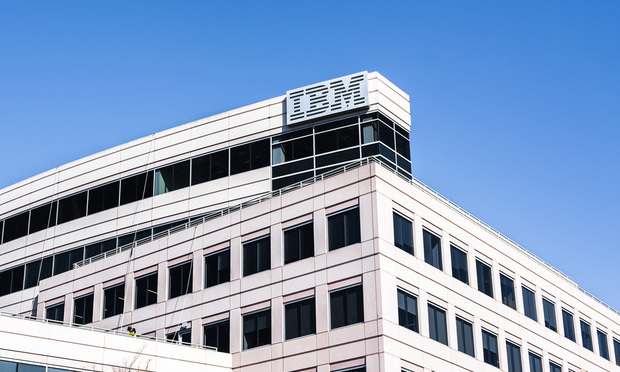
IBM, once a leader in the shift away from defined-benefit plans to defined-contribution plans in the United States beginning in 1984, is now heading in a new direction with its retirement savings benefit for employees. Many industry observers wonder if other employers will follow IBM's lead this time.
IBM notified employees earlier this month that it will suspend its 401(k) match and 1 percent automatic contribution, as of January 1, and will instead make a monthly account credit toward a new "retirement benefit account" (RBA). The new plan will also provide a one-time salary increase to offset the difference between the current company contribution and the new account credit amount.
Recommended For You
Currently, IBM automatically enrolls employees in its 401(k) plan—which it says 97 percent of eligible employees participate in—at 5 percent of their salary, unless they choose a different option. While employees will still be allowed to contribute to a 401(k) and direct investment choices related to those funds, they will not be able to invest funds saved in the new RBA. IBM instead is guaranteeing a 6 percent return on investments through 2026, and the 10-year Treasury yield—currently about 4.5 percent—through 2034.
According to IBM's 2024 U.S. Benefits Guide, the plan is portable and employees are 100 percent vested once eligible.
An analysis by Morningstar described IBM's new RBA plan as a hybrid scheme consisting partially of a defined-contribution plan and partially of a defined-benefit plan, while some industry commentators said the plan appears to be similar to a cash balance plan.
Some industry experts are concerned the new plan could reduce participants' long-term rate of return by shifting retirement funds that could have been invested in equities into a fixed-interest account. Critics also worry that employees will have less incentive to contribute to the retirement savings plan without a match and that it could take away some of the flexibility employees have with a 401(k) to access funds through loans. The salary increase also would be taxable income, unlike a 401(k) match.
However, Morningstar and others also pointed to potential advantages of the plan, including higher participation.
"Not every employee has the financial wherewithal to contribute enough to a 401(k) every year to get the full matching contribution. For those employees, getting an accrual to replace the match, even in years when they do not contribute fully on their own, is a clear win," said John Lowell, a partner at defined-benefit plan administration and design firm October Three.
Lowell also noted that the plan could benefit employees who want a guaranteed lifetime income solution that comes with cash balance plans.
Does all of this mean a rebirth of pensions is coming? "It's difficult to tell," said Lowell. "Certainly, IBM is a large, well-known employer. And many observers would say that it was IBM's shift to a [defined-contribution]–only model [that] was the start of a fairly large exodus away from [defined-benefit plans]. If there is any organization that could make this change to start a trend back, IBM might be the one."
© Touchpoint Markets, All Rights Reserved. Request academic re-use from www.copyright.com. All other uses, submit a request to [email protected]. For more inforrmation visit Asset & Logo Licensing.



